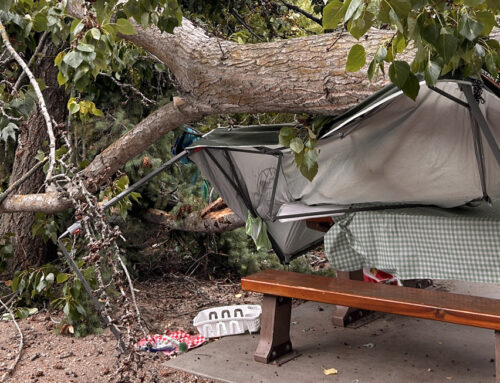I walked into the school in mid-August and was greeted by a very friendly student who had been working with Mr. McGrail all summer doing school maintenance. I asked him about his summer and he immediately asked me all about mine! It was such a delightful conversation!
I have to be honest, many times I have asked a student about their summer and received a reply of “Good,” and nothing else. How inspiring is it when a student looks me in the eye and asks me back, “What did you do this summer Mr. Goertzen?” It shows interest, intelligence, confidence, and good manners to ask a question back to an adult.
I have spent some time this summer thinking about things that separate the socially adept from the socially inept. They seem to be small things which make a big difference. As I made this list, I am reminded again that these are things we need to intentionally do as adults and teach to our children (teenagers too).
It is impressive when students get off our school bus, or out of a parent’s vehicle on a field trip, and without prompting say, “Thank you for the ride Mrs. Smith.” How amazing is it when a new prospective family comes through the front door and a student opens the door, looks them in the eye and says, “Good afternoon!”
Social adeptness will not appear in our children unless we are deliberate and consistent both at home and at school. And, modeling these behaviors is the best teacher of all. Perhaps take this list and go through it with your children, whatever the age. Sit down and think up examples of your own which aren’t on this list. Reward your children with positive encouragement when you see them live these out. Put this list on your fridge for the year. It is the start of a new school year. This isn’t the whole list, that’s for sure, but together they get at the one big thing—care for others, like you care for yourself.
Strive for Twenty-Five
2. Make confident eye contact when talking; smile when you greet someone.
3. Say, “Please.” Say, “Thank-you.”
4. Always tell the truth.
5. Say, “I wonder if…” to make a suggestion.
6. Never check your cell phone during a conversation.
7. Turn off your cell phone during public events (especially church).
8. Write “formally” for “formal” writing.
9. Say “Hello!” to adults in the school, crosswalk, parking lot.
10. Be slow to speak, quick to listen; slow to become angry, quick to forgive.
11. Always clear your own dishes (and ask to help while visiting a friend’s house).
12. Come early. Don’t EVER be late.
13. Come prepared (for whatever you are doing).
14. Nod to show understanding.
15. Honour your parents and obey (the first time they ask).
16. Never use “negative” put-down humour (in person or online).
17. Keep confidential information confidential.
18. Dress appropriately. Boys, don’t wear hats indoors or show your underwear, anywhere. Girls, don’t wear boys’ hats indoors and dress modestly (Google “modesty” if you don’t know what that means).
19. Give more effort than is expected. Be the first to volunteer.
20. Always be grateful for gifts (and show great thankfulness).
21. Love people with patience, kindness, goodness, faithfulness and self-control.
22. Apologize when you’re wrong (be the first to admit it).
23. Be humble; give credit where it’s due.
24. See another’s point of view.
25. Do to others what you would have them do to you.






WHAT DO YOU THINK?
#16 – I find that people often say that these jokes don’t matter because “it’s my friend” or “it’s my sister”… which I respond with pointing out that those are the people to be especially nice to. Those types of jokes aren’t usually funny.
Great point Alison! Sarcasm,
negative humour, “I was just joking…” rarely leads to stronger
relationships or a more loving community. I have heard it said, “Think about
who will be crying at your funeral, then spend more time with those
people.” But that could just as easily be said, “Think about who
will be crying at your funeral, and be especially nice to those people!”
GG